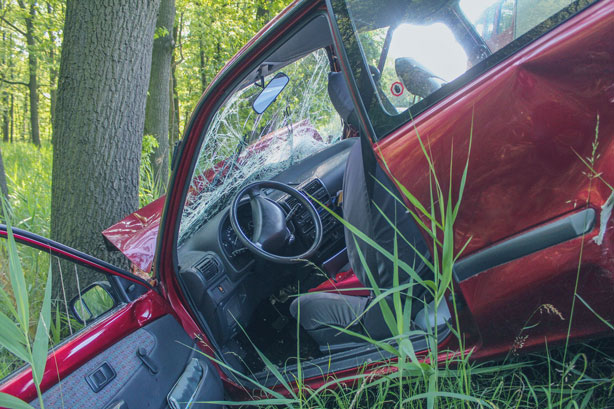6 Types of Damages in an Indiana Auto Accident Case
If you’ve been injured in a car accident in Indiana, you’re probably overwhelmed with questions about how to pay for your medical expenses and manage the consequences of an unexpected injury or tragedy. You may start to wonder if initiating an Indiana auto accident case is your best option. There are six types of damage for which […]

June 11, 2011
If you’ve been injured in a car accident in Indiana, you’re probably overwhelmed with questions about how to pay for your medical expenses and manage the consequences of an unexpected injury or tragedy. You may start to wonder if initiating an Indiana auto accident case is your best option.
There are six types of damage for which you may be eligible for compensation after an Indiana car accident:
-
Medical Expenses
-
Pain and Suffering
-
Emotional Distress
-
Lost Wages
-
Loss of Earning Capacity
-
Property Damage
Medical Expenses

Most people know that if you’re injured in a car accident, there are going to be medical expenses. These damages not only include doctor’s fees, but also hospital, emergency room, chiropractic, physical therapy, surgical, medicinal, and medical device fees, including the cost of future medical care.
In order to claim medical expenses as part of your damages successfully, you need to continue your medical treatment to its end. That means going to every doctor appointment and taking every medication your doctor prescribes. Not only will this improve your health, but this will also help you to document your injury and prove to the insurance company that your injury is real and not over-exaggerated or the result of a different event after the accident.
Continuing your medical treatment will also make it easier to prove to the insurance company that you have reached maximum medical improvement (MMI). Reaching MMI means that you are not going to be able to improve your condition any further. Hopefully, you reach MMI when you’ve regained 100 percent of the health you experienced before the accident. In cases where you’ve been unable to recover 100 percent of your health, however, your doctor may inform you of ongoing medical care that you’ll need for the foreseeable future or possibly even the rest of your life. This will make it easier for you to claim future medical expenses as part of your damages.
Another reason it’s important to reach MMI is because you’ll know for certain that you’ve finished treating and can claim all of your medical expenses as damages. The insurance company will try to get you to settle early for less than what you deserve. For example, imagine you broke your wrist in a car accident. The insurance company may reach out to you early on and offer to pay for your emergency room visit and your time off work. Sounds fair, right? But if you accept that offer while you’re still in your cast, you risk losing coverage for future medical expenses. What if the doctor discovers that your wrist isn’t healing correctly and needs surgery? If you accept a settlement offer too early, the insurance company won’t have to pay for all of your medical expenses.
Pain and Suffering

Pain and suffering refers to the severity of the injury and pain and the expected duration of pain. Although there is no standard formula for calculating a victim’s pain and suffering, an experienced attorney can evaluate your claim and estimate how much compensation is appropriate for the pain and suffering you experienced.
Pain and suffering is separate from your medical expenses. Often, attorneys will multiply your medical expenses and other financial damages (lost wages, for example) by a certain number to arrive at an appropriate amount for pain and suffering. Other attorneys may instead assign a daily value to your pain and suffering and multiply that value by the number of days you were receiving medical treatment.
Your pain and suffering are real, and you should be compensated for them. Because no one’s pain and suffering is quite like another’s, you should trust an experienced car accident attorney to help you determine the extent of your pain and suffering and an appropriate amount for which you should be compensated.
Emotional Distress

Some accidents are severe enough that they take a psychological toll on victims and survivors. In those cases, damages for mental anguish or emotional distress are awarded.
Symptoms of depression after a car accident include anxiety, headaches, difficulty eating or sleeping, lack of energy, difficulty thinking or concentrating, and feelings of hopelessness and worthlessness. Survivors of fatal accidents may struggle with survivor guilt. A car accident may trigger suicidal thoughts.
Injuries to your mental and emotional health need medical treatment just as much as injuries to your physical health. You’re entitled to compensation for the bills you incur as you seek to improve your mental health.
Even if you suffered from mental health issues before the accident, you may still be entitled to compensation. Although the accident didn’t cause your emotional distress, it may have worsened it. Just like seeing a doctor for your physical injuries is the best way to determine the cause of your injuries and document their treatment, so is seeing a licensed psychologist or psychiatrist to determine how the car accident affected your mental health and to document your efforts to improve it.
Lost Wages

If you suffered a severe injury in a car accident, chances are that you’re not returning to work anytime soon. Even if you didn’t have to take off of work completely, maybe you had to pull back to part-time. No matter if it’s a few days or a few weeks off, if your injuries caused you to miss work, you are entitled to recover the amount of money you would have earned had you not been injured.
However, in order to be eligible to receive compensation for your lost wages, you need to see your doctor and have your doctor expressly state that you cannot return to work due to your injuries from the accident. If you refuse to see a doctor and simply decide on your own that you shouldn’t return to work, then there’s no evidence that you had a medical reason for not working, and the insurance company can argue that your time off of work wasn’t connected to your injuries sustained in the accident. Make sure that if you are missing work, it is because your doctor has connected your inability to work to your accident.
Loss of Earning Capacity

What if your injury leaves you permanently disabled? That’s where loss of earning capacity can come into play.
If your injury leaves you unable to return to work or limits your ability to work in the future, you may be able to claim damages under a loss of earning capacity.
For example: let’s say you’re a world-class pianist who plays concert venues around the world. If you get injured in a car accident and end up losing two fingers on your right hand, your ability to make a living in your field of choice will be greatly diminished. You may never be able to return to work again.
The amount of compensation you can receive for a loss of earning capacity will likely depend on your type of injury as well as the type of work you do. Losing two fingers would be catastrophic for a world-class pianist, but perhaps a Wal-Mart greeter could return to their work without suffering a diminished capacity to do their job.
Property Damage

Property damage includes not only the value of your vehicle before the collision, but also the value of any other property that may have been damaged in the accident: sunglasses, smartphones, groceries, and even car seats.
There isn’t much room for debate on how much you’ll be compensated for your car. You’ll receive the value of your car at the moment before the collision. This does not include any loans you currently have on your car. For example, if your car has depreciated in worth since your purchase and is only worth $4,000 but you owe $5,000 in loans for the vehicle, you’ll still only receive $4,000.
Help from an Indiana Car Accident Attorney
When seeking legal representation for your Indiana car accident claim, be wary of any car accident lawyer who attempts to value your case upfront. There’s no way any attorney, even one with lots of experience and skill, could promise you a dollar amount upon hearing just a summary of your accident. As you can see, there are six different types of damages you can recover from your car accident, and the value of your damages is dependent on many factors that take time to evaluate.
An Indiana car accident attorney can help you evaluate your claim and make sure you get the compensation you deserve. Call Hensley Legal Group today or contact us online for a free consultation. Be sure to check out our free eBook, Consumer’s Guide for Injured Victims, for more information.